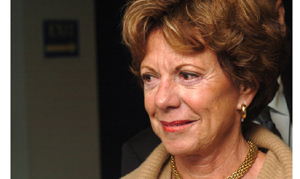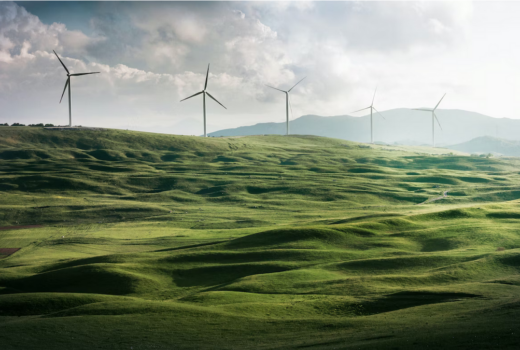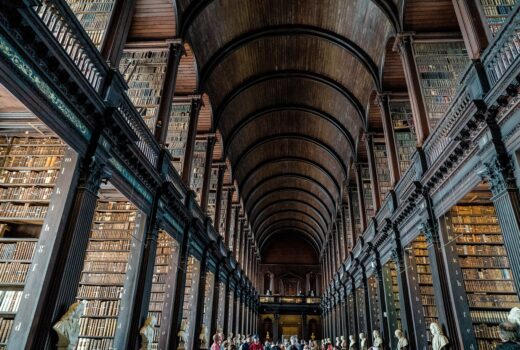Samen werken aan Open Access

Voor de European Federation of National Academies of Sciencesand Humanities (ALLEA) bepleitte Kroes het benutten van data delenin wetenschap en politiek. Daarvoor liggen op dit moment de juistetechnologische infrastructuren en worden nog steeds infrastructurenontwikkeld.
Samenwerking is daarbij van belang tussen overheden,bedrijfsleven en wetenschap. Net als in haar
U leest de volledige speech van Neelie Kroeshieronder
“Ladies and Gentlemen,
To make progress in science, we need to be open and share.
The British scientist Isaac Newton famously once said, alongwith many other luminaries over the years, “If I have seen further,it is by standing on the shoulders of giants”. That may seem rathermodest for the man who is credited with so many lasting ideas. Butindeed he was right: because he couldn’t have reached theastonishing results he did without accessing and learning from thework of others. Without the raw data, the technical innovations andthe findings of people like Brahe, Copernicus, and Kepler. And ofcourse of Galileo, once himself a member of this very Academy.
Open data is overal
Openness and sharing are not exclusive to the scientificcommunity. The principle of making publicly funded informationresources freely available also applies to data collected by publicadministrations. Our open data package, which I launched lastDecember, shows that there are benefits for web entrepreneurs,ordinary citizens, governments and many others too.
But sharing data, and having the forum to openly use and buildon what is shared, are essential to science. They fuel the progressand practice of scientific discovery. That’s why scientists havelong sought out new tools and new ways to share theirknowledge.
First through institutions: academies and learned societies likeyours are crucial as a forum to exchange ideas.
Then printed scientific publications: a model which served itspurpose for a long time, combining wide distribution with qualityassurance in the pre-electronic age.
Big data needs big collaboration
Then, of course, the ultimate sharing tool, the Internet.
Because remember, the World Wide Web was invented by physicistsat CERN. And no wonder. Because it’s a tool enabling vast amountsof data and results to be shared, examined, compared and published.All things that scientists crave.
And we are just now beginning to realise how significant atransformation of science the openness enabled by ICTinfrastructures can mean. We start the era of open science.
Take data analysis. Big Data analysis: Every year, thescientific community produces data 20 times as large as that heldin the US Library of Congress.
And big data needs big collaboration. Without that, it’s notpossible to collect, combine and conclude results from differentexperiments, in different countries, in different disciplines. Lookat genome sequencing. Open access databases like the European EMBLand the US GenBank double every 9 months, and already store over400 billion DNA bases. These initiatives deliver more efficient,practical and important results than could ever have been achievedwith separate, closed data systems. And indeed, this approach canbe credited with having created the whole new science of systemsbiology.
Niet alleen Europa
That is why we’ve invested in high-speed research networks likeGÉANT. Today, GÉANT is connecting millions of researchers,scholars, educators and students. That is why we want to promoteever better and open infrastructures for researchcollaboration.
And I don’t limit our ambitions to Europe. We are working withinternational partners – the G8 but also major emerging economies -to come up with a global approach to make the world’s scientificresources interoperate, and open to discovery. Alongside that,we’re also working with the US, Canada and Australia to create aglobal coordination mechanism that puts scientific communities inthe lead to define the global web of knowledge. With theseinitiatives, we can create a resource to link up researchers andtheir data wherever they are, whatever their field.
But Open science isn’t just about opening up data. It’s alsoabout sharing research findings. So that scientists can learn fromeach other: and society overall can benefit, too. What’s more, thechanges in the value chain that the Internet enables make suchsharing economically possible. So I’m delighted that, after allthese years, many share my enthusiasm for open access topeer-reviewed publications. This should apply for sure to allresearch that is at least partly funded by the public. But thelogic of openness and sharing of course holds for all scientificand scholarly research.
We already have the infrastructure supporting open access.Researchers, funding bodies and the public are already using andre-using thousands of publications hosted around the world ine-Infrastructures like OpenAIRE.
Horizon 2020
This is important. Not just because it helps scientists andscience to progress. But because we should never forget that thenumber one research funder in Europe is the taxpayer. And theydeserve to get the largest possible reward from thatinvestment.
That is why the Commission will soon present a Communication anda Recommendation proposing the way forward on open access toresearch results. It will reflect the Commission’s decision, in itsInnovation Union Flagship policy, to make all outputs from researchfunded under the EU’s own Horizon 2020 Research and Innovationframework programme openly accessible.
It will look at the role of e-Infrastructures in supporting openaccess. And it will also look at the role of rewards thatincentivise researchers to share. All together, it will show howwidening access to publications and data generates substantialbenefits and how we can, together, make the European Research Areaa successful enterprise.
Grenzen aan openheid
Of course I recognise there are limits to openness and thatthere are costs associated with it. We must protect personal data,for example. Occasionally there may be security reasons that argueagainst wide distribution. And sometimes there are privateinvestments to defend.
But for me, these are exceptions, not the rule.
None of that means that a model dating back hundreds of years isstill the right one for the internet age.
None of that means we should cut back on life-saving cancerresearch in the supposed interests of patients – when we can ensurethat data is anonymised or aggregated.
None of that means subscription-based models for access toresearch publications should continue to be dominant in an erawhere distribution costs approach zero.
And none of that means we should withhold from the public thework funded by their tax Euros.
Make science open!
Without collaboration, science doesn’t work and now we have theICT infrastructures that make it easy and cheap to collaborate.With the right infrastructure and the right approach, we can bringon a new age of scientific practice and discovery.
So, wherever you sit in the value chain, whether you’re aresearcher or an investor or a policy maker, my message is clear:let’s invest in the collaborative tools that let us progress. Let’stear down the walls that keep learning sealed off. And let’s makescience open”
Deze
Meest Gelezen
Vrouwen houden universiteit draaiende, maar krijgen daarvoor geen waardering
Wederom intimidatie van journalisten door universiteit, nu in Delft
Hbo-docent wil wel rolmodel zijn, maar niet eigen moreel kompas opdringen
‘Burgerschapsonderwijs moet ook verplicht worden in hbo en wo’
Raad van State: laat taaltoets nog niet gelden voor hbo-opleidingen



